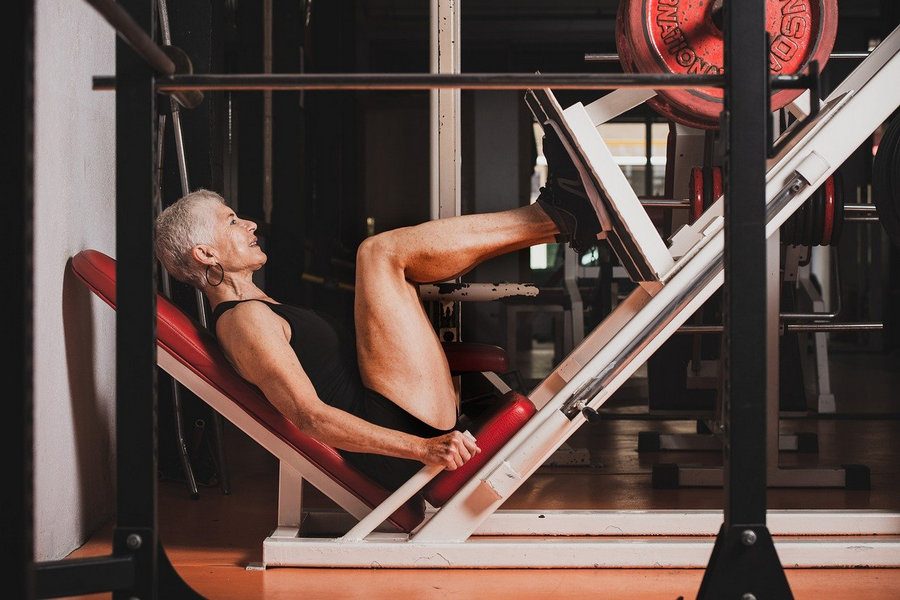There are many questions about how to keep an immune system healthy. There are also many ways to compromise it, as we have learned throughout the pandemic.
Your immune system is your body’s natural line of defense against germs that cause illness. It works by protecting you against harmful bacteria and viruses. When your immune system is not functioning correctly, you’ll be more susceptible to catching a common cold, flu—or worse.
Immune systems can weaken due to age, lack of sleep, poor diet, or even physical activity. Sometimes we can’t do anything about some of these things, but we can address others by changing our lifestyle and eating habits.
While it’s impossible to prevent every infection at assisted living facilities, homes, offices, or public places, there are some things you can do to protect yourself from harmful germs that could lead to illness or disease.

How to Keep a Healthy Immune System
Follow these tips on how to keep a healthy immune system while living in assisted living, and make sure you get the care you need while staying safe inside a senior community.
Get Vaccinated
Vaccines are one of the most effective ways to prevent infectious diseases. They can protect you from various illnesses, including Hepatitis A and B, measles, polio, pneumonia, flu, and tetanus.
According to the CDC, people living in long-term care facilities are at a higher risk of getting the flu than others. The flu can spread through residents, caregivers, and visitors.
The first step to a healthy immune system is to get your annual flu shot, as well as other recommended vaccines. The second step is to find a reputable assisted living facility.
Wash Your Hands Often
Washing your hands is one of the most important things you can do to keep a healthy immune system.
Assisted living residents need to wash their hands often, as some seniors are more susceptible to illness due to weakened immune systems.
Here are a few tips for washing your hands:
• Clean under your nails with a nail brush
• Use lukewarm water, not hot or cold
• Make sure to use a moderate amount of soap and get up to your elbows
• Scrub for at least 20 seconds, which is about the time it takes to sing Happy Birthday twice
Take Care of Your Skin
When living in an assisted living home, it is essential to take care of your skin.
We all know that a large part of staying healthy is eating right and getting regular exercise. But did you realize that taking care of your skin is also important?
It would be best to treat cuts and scrapes immediately with proper cleaning or bandaging so that infections cannot take hold.
Here are three simple tips for doing just that!
1. Keep Your Skin Moisturized – Cold and dry air is rough on your skin. Make sure to keep it moisturized so that it won’t crack or bleed, leading to infection.
2. Be Mindful When Shaving – It’s easy to nick yourself when shaving, especially at certain times of the year when your skin is drier than usual. If this happens, clean the cut thoroughly and cover it with a bandage until healed.
3. Wear Sunscreen – You can still damage your skin by sun exposure even when it’s cold outside! Make sure to wear sunscreen whenever possible to protect yourself against harmful UV rays, even during the winter months.
Get Outdoors
Research shows that getting outside in nature can help stave off Alzheimer’s disease and dementia.
The sun helps your immune system by providing vitamin D. So it’s essential to get outside regularly for some fresh air and sunshine, even if it’s just sitting on their porch for an hour every day!
Getting outside also helps you stay active and mobile longer than those who don’t. Aside from that, there is proof that seniors who live on a farm have more vital immune systems than their city-dwelling counterparts—not to mention longer life expectancies.
Stretch Daily
Stretching helps seniors keep their muscles flexible and strong. Seniors can do simple stretches, like touching their toes or reaching over their heads while they’re watching TV or reading in bed. It’s also crucial for seniors to get up and move around every couple of hours. They should try activities that don’t strain their bodies, like walking or socializing with friends.

Eat Well
A healthy diet can help seniors maintain a robust immune system. Eating well is especially important when moving into assisted living.
Here are some tips for eating healthily in an assisted living facility:
• Always wash your hands before eating and after using the bathroom.
• Be careful not to cross-contaminate by keeping separate utensils for meats and vegetables.
• Keep your hands out of your mouth.
• Don’t share silverware or glassware with others without cleaning it first.
Meditate
Researchers say that meditation is one of the best activities seniors can do to improve their memory and slow down mental decline. In addition, research shows that meditation strengthens people’s immune systems and helps them stay healthy while they age.
Meditating also helps them maintain a positive mood throughout the day. A good way for seniors in assisted living facilities to meditate is by using mindful breathing. That means breathing in deeply while focusing on one thought or image.
Vitamin D
While it is true that most people get plenty of Vitamin D from sun exposure, this becomes more difficult as we age. We tend to spend less time outside, and our skin doesn’t produce as much Vitamin D when exposed to the sun.
Sources of dietary Vitamin D include fortified foods like milk, orange juice, or eggs. Try eating fatty fish like salmon and tuna, cheese, and sun-dried mushrooms.
If you’re unsure if you are getting enough Vitamin D in your diet, talk to a doctor about whether or not a supplement might be right for you!
Get Some Quality Sleep
Sleep is essential for keeping your immune system healthy. While you sleep, your body produces more white blood cells and, most importantly, antibodies. Antibodies help fight off and prevent infections, so they are essential to a robust immune system and overall health.
A lack of sleep is a common trigger for memory loss. To ensure your brain has time to process and rest, make sure you’re getting enough shut-eye by tracking your sleep patterns.
It is challenging when your mind is racing late at night, but try setting a time to sleep and then sticking to it. It can help you stay calm and healthy throughout your golden years.
Hydrate
Staying hydrated is particularly important for seniors who are in assisted living facilities. Some studies have shown that the aging body needs more water than younger bodies.
It’s also important to remember that some of the medications prescribed to older adults have side effects, such as dry mouth. This makes drinking water even more beneficial.
You’ve probably heard you should drink eight glasses of water per day. Yet, you might not realize is that every time you pee, liquids are flushed out of your body. Replacing those fluids can have a significant impact on your health. And there’s more: Not only does drinking water keep your system running smoothly, but it also helps flush out dangerous toxins and boosts your energy levels.
If you’re having trouble remembering to drink water throughout the day, try setting reminders for yourself using a clock or calendar. You can also ask a family or friend to help, or try using an app on your phone.
If it’s hard to carry around a water bottle with you throughout the day, talk to your caregiver about having a cup with a lid and straw in your room at all times so you can sip whenever you can remember.

Manage Stress
We know that stress is a common cause of illness, so it’s essential to manage stress to keep your immune system healthy. Stress can affect your overall health, which is why it’s so important for seniors living in assisted living or memory care facilities to manage their stress levels.
One step towards keeping a healthy immune system involves identifying those sources of stress and coming up with ways of dealing with them more effectively.
You can reduce stress in your life by trying some lifestyle changes, such as many suggestions we covered already:
• Exercising regularly
• Getting enough sleep
• Eating a healthy diet
• Maintaining a positive outlook
• Taking breaks from stressful situations
Other activities that can help you relax include yoga, meditation, getting a massage, reading, walking, and spending time with family members and friends.
Stop Smoking
Most of us know that smoking is bad for our health, but how many smokers realize how much it can hurt memory and cognitive function? It’s true—research has shown tobacco smoke negatively impacts long-term brain function in seniors. This includes increasing the risk of Alzheimer’s disease and slowing recovery from illnesses and injury.
Please encourage them to stop smoking today to help seniors keep their immune systems healthy without putting their brains in danger.
Drink Alcohol in Moderation
While drinking too much alcohol can affect the body’s ability to fight off infection, drinking in moderation can often improve your immune system. This is because moderate consumption of alcohol increases the production of cytokines, which are proteins that act as messengers between cells and coordinate their response to infection and inflammation.
Cytokines also regulate other activities in the immune system—such as fighting off pathogens like bacteria and viruses—and therefore improve its overall function.
Alcohol may also increase levels of immunoglobulin A, or IgA (an antibody found in mucous membranes), which helps protect against bacteria and viruses from entering the body through the mouth, nose, ears, throat, lungs, and gastrointestinal tract.
Note that moderate amounts of alcohol mean less than one alcoholic drink per day for women and less than two drinks per day for men.

How to Keep a Healthy Immune System in an Assisted Living Facility - Conclusion
The immune system is the body’s defense against dangerous microorganisms, such as bacteria, viruses, and parasites that invade it. It also helps in some of the body’s normal reactions, such as healing. An efficient system relies on proteins known as antibodies. They function to protect the body from foreign invaders, such as bacteria or viruses.
Assisted living facilities and memory care homes that offer personalized attention, also provide practical ways to keep seniors’ immune systems strong and healthy.
The most important things to keep a healthy immune system in an assisted living facility are good nutrition, adequate rest, and exercising regularly. These activities can help stave off bugs, infections, and other health problems that might otherwise affect the elderly.
Residents with healthy immune systems enjoy a better quality of life, recover quicker from illness, and need fewer medications. Their open wounds are less likely to become infected, and these seniors can spend more time with family and friends.
If you require a highly rated assisted living and memory care home in the Denver area, contact Applewood Our House today.






